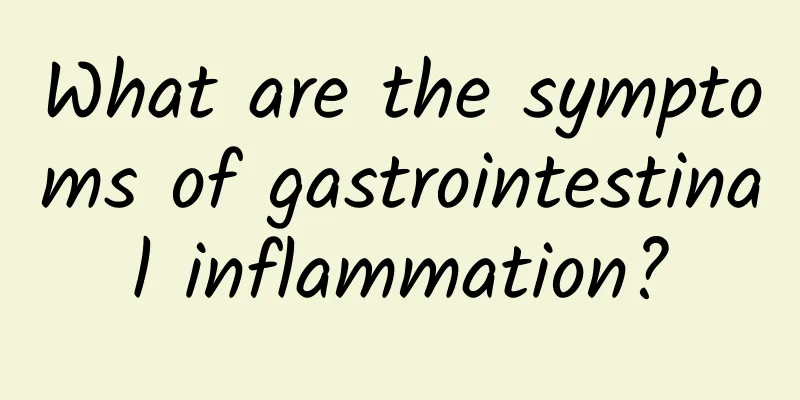What causes a slow heart rate?

|
The main cause of bradycardia is sinus bradycardia, which is caused by both physiological and disease reasons. For example, if there is nerve excitement, it may cause such a phenomenon. In addition, we must prevent pathological causes, such as damage to the end. Because of ischemia and poisoning, it may cause sinus bradycardia. We must be more vigilant about acute myocardial infarction, which is very harmful to patients. What causes a slow heart rate? 1. Cardiac factors (1) Vagal excitation usually acts through neural (mainly vagal excitation), humoral mechanisms, via the extracardiac nerves, or directly acts on the sinoatrial node to cause sinus bradycardia. (2) Impaired sinus node function refers to sinus bradycardia caused by damage to the sinus node (such as inflammation, ischemia, poisoning or degenerative damage). In addition, it can be seen in myocardial damage such as myocarditis, pericarditis, myocardial sclerosis, etc. It may also be caused by transient sinus node inflammation, ischemia and toxic damage. (3) The incidence of sinus bradycardia in acute myocardial infarction is 20% to 40%, with the highest incidence in the early stages of acute myocardial infarction (especially inferior wall infarction). 2. Extracardiac factors Sinus bradycardia caused by extracardiac factors is mostly accompanied by vagal hyperactivity, is neurological, and the heart rate is not very stable. When the autonomic nervous tone changes, such as after deep breathing, exercise, and atropine injection, the heart rate often changes and the PR interval may be slightly prolonged. Treatment 1. Treatment principles (1) For patients with sinus bradycardia with a heart rate of no less than 50 beats per minute and no symptoms, no treatment is required. (2) If the heart rate is less than 50 beats per minute and symptoms occur, drugs to increase the heart rate (such as atropine, ephedrine, or isoproterenol) may be used, or a pacemaker may be considered. (3) Patients with significant sinus bradycardia accompanied by sinus arrest and syncope should have an artificial pacemaker installed. (4) Treatment of primary disease. (5) Symptomatic and supportive treatment. 2. General treatment (1) For patients with sinus bradycardia, the cause should be carefully identified. Most cases of sinus bradycardia have no important clinical significance and do not require treatment. (2) In patients with organic heart disease (especially acute myocardial infarction), a very slow heart rate can cause a significant decrease in cardiac output, affecting the blood supply to important organs such as the heart, brain, and kidneys. The symptoms are obvious. At this time, atropine (injection or oral) should be used, or even isoproterenol can be intravenously dripped to increase the heart rate. Aminophylline can also be taken orally. (3) For patients with severe sinus bradycardia caused by impaired sinus node function, who have a very slow heart rate, obvious symptoms, or even syncope, and who have poor response to drug treatment, a permanent artificial pacemaker needs to be installed to prevent sudden sinus arrest. (4) For patients with organic heart disease accompanied by sinus bradycardia and combined sinus arrest or persistent and recurrent sinoatrial block without escape rhythm, syncope or Adams-Stokes syndrome, and ineffective drug treatment, a permanent artificial pacemaker should be installed. (5) For sinus bradycardia caused by increased intracranial pressure, drugs, bile duct obstruction, etc., the cause should be treated first, taking into account the degree of slowness of the heart rate and whether it causes a decrease in cardiac output. Appropriate use of drugs that increase heart rate. |
<<: Three situations of fetal heart rate deceleration
>>: What to do if you are bitten by a seaside insect
Recommend
Stomach pain after meals
Many people should know that a person should walk...
What diseases does ENT department treat?
Otolaryngology is a common department in hospital...
Pustules on nose and mouth
Many people often have pustules on their noses an...
What ointment to use for anal fissure
The anus is our back garden, which is located abo...
Monk Fruit Dosage
Monk fruit is a food that has many benefits to th...
Why are my legs a little swollen?
If you experience calf swelling, you should pay a...
What should I do if I take the wrong medicine? How to deal with accidental ingestion of medication
We often say "you took the wrong medicine&qu...
What is spermatorrhea?
Spermatorrhea is also called slippery discharge, ...
What are hemorrhoids? What are the classifications of hemorrhoids?
Hemorrhoids are a common and frequently occurring...
Symptoms of vulvar eczema
Vulvar eczema is an allergic skin disease. There ...
Hypertension precautions
Hypertension is a common disease. This type of di...
Frequent stabbing pain in the chest
When we were young, we often stayed up late, had ...
Why do elderly men have difficulty urinating?
When people get old, they always develop various ...
How to treat gallbladder stones
Gallbladder stones mainly occur in adults, with a...
Can I walk if the fracture line is blurred?
The blurred fracture line does not mean that the ...









